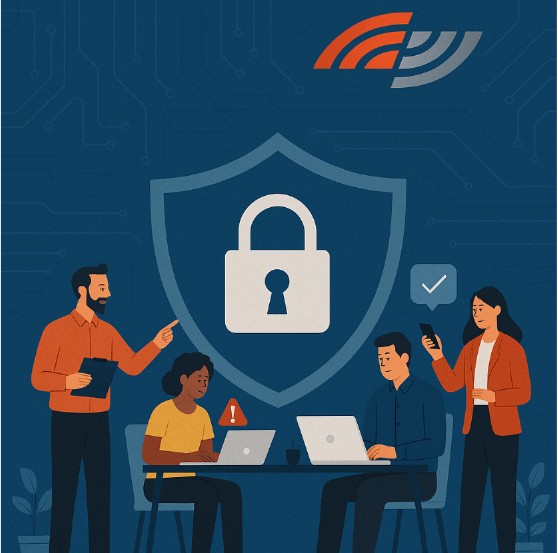
In an era where cyber threats are more sophisticated and relentless than ever, security cannot be just the IT department’s problem—it must be everyone’s responsibility. A security-first culture means integrating cybersecurity into the DNA of your company, where every employee, from interns to the CEO, understands their role in protecting the organization.
Creating this culture doesn’t happen overnight. It requires leadership, education, communication, and reinforcement. Here’s how to start building a security-first company culture that actually works.
1. Start with Executive Buy-In
A culture shift must come from the top. If the leadership team doesn’t prioritize cybersecurity, the rest of the organization won’t either. Executives should:
-
Speak openly about cybersecurity during all-hands meetings.
-
Participate in training sessions.
-
Fund and support security initiatives without hesitation.
When leaders lead by example, the message is clear: security matters.
2. Make Security Part of the Onboarding Process
First impressions matter. If security isn’t addressed during onboarding, new hires won’t see it as a priority. Every new employee should:
-
Complete cybersecurity awareness training.
-
Learn about phishing, password hygiene, and acceptable use policies.
-
Be introduced to the company’s incident reporting process.
Set the expectation early that cybersecurity is everyone’s job.
3. Provide Ongoing, Engaging Education
Annual, checkbox-style security training is not enough. To build real awareness:
-
Run monthly or quarterly training sessions.
-
Use microlearning formats like short videos or quizzes.
-
Simulate phishing attacks to test real-world reactions.
Make training relevant, digestible, and even fun. Employees are more likely to retain information when it’s presented in an engaging way.
4. Reward Secure Behavior
Positive reinforcement works. Recognize and reward employees who demonstrate good security practices, such as:
-
Reporting suspicious emails or behavior.
-
Completing training ahead of deadlines.
-
Suggesting improvements to existing security protocols.
Consider leaderboards, badges, or even small rewards. It promotes a culture where secure behavior is acknowledged and encouraged.
5. Encourage Open Communication About Threats
Employees should feel safe reporting security concerns—even if they made a mistake. Foster a blameless culture where the goal is to learn and improve.
-
Set up anonymous reporting channels.
-
Celebrate near-misses as learning opportunities.
-
Provide clear guidance on how to escalate concerns.
Fear and silence are the enemies of a secure organization.
6. Embed Security in Every Department
Every team handles data differently, so tailor your security message to each department.
-
Developers should be trained in secure coding practices.
-
HR must handle sensitive employee data with care.
-
Marketing should understand the risks of sharing too much online.
Security shouldn’t feel like a burden—it should be a natural part of every team’s workflow.
7. Regularly Review and Evolve Policies
A static security policy is a dead one. Revisit your policies regularly to ensure they reflect:
-
The latest threat landscape.
-
Changes in technology and tools.
-
Lessons learned from past incidents.
Involve staff in these reviews. Feedback from employees on the front lines can help spot blind spots before attackers do.
Conclusion
Building a security-first company culture is an investment—not just in protecting data, but in empowering your people to be your strongest line of defense. With leadership support, consistent education, and a positive reinforcement model, your company can create a culture where security becomes second nature.
Remember, it’s not about making people afraid of mistakes—it’s about making them aware of risks and confident in how to respond.
